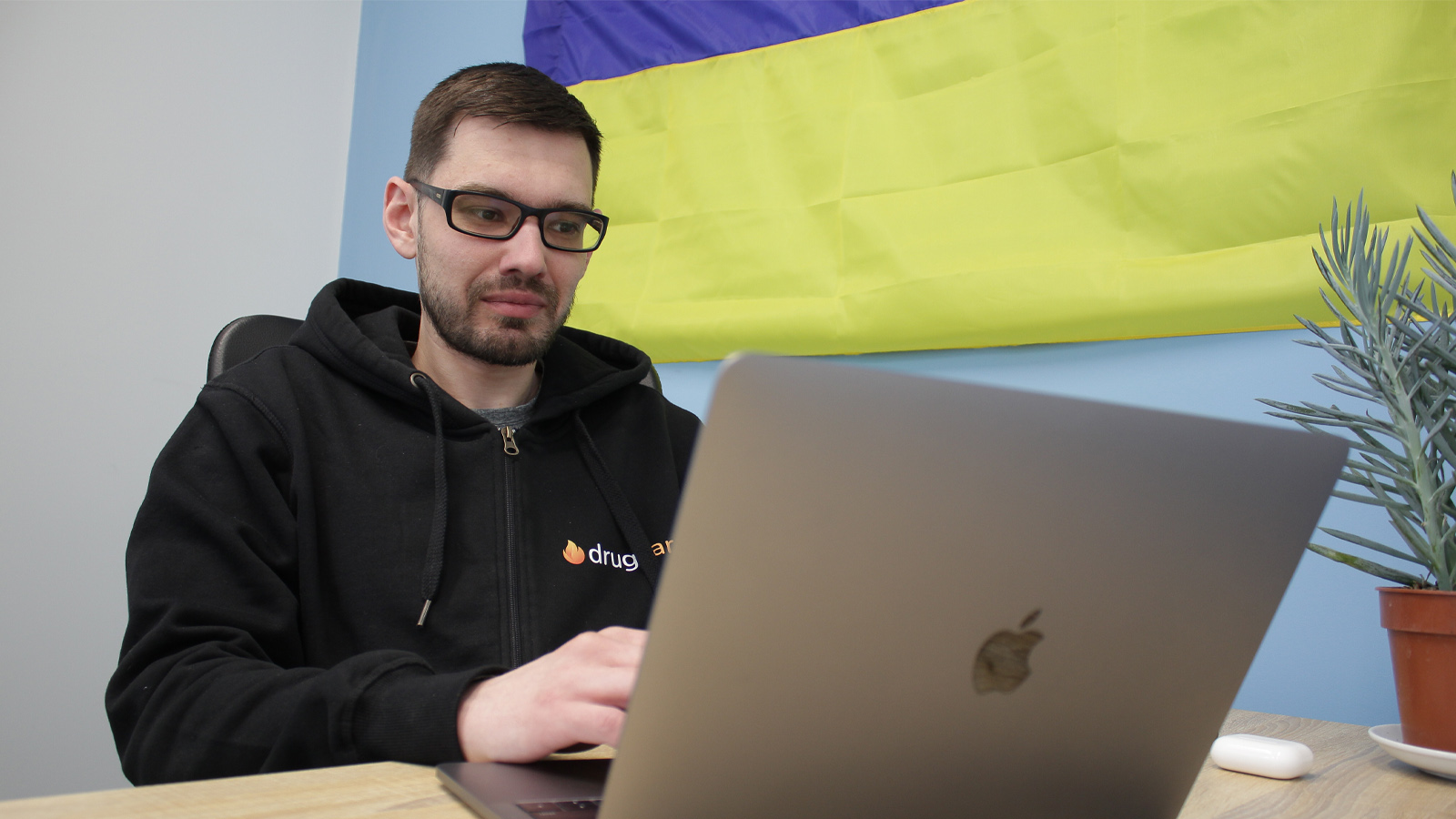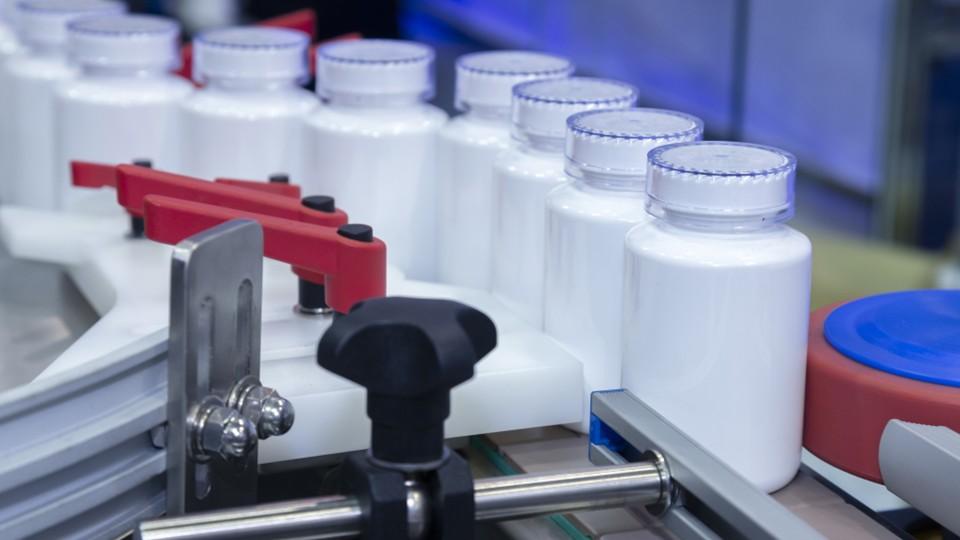How automatization keeps drug safety in war-torn Ukraine

Ukrainian pharmaceutical companies are struggling to perform their duties in pharmacovigilance as Russia launched a wide-scale war in Ukraine. Automatization may be a solution.
Russia's full-scale invasion of Ukraine has already affected the global pharmaceutical industry a lot. Some companies have terminated their contracts with Russia, while some manufacturers have lost their revenue partially.
However, the biggest toll was, obviously, taken by Ukrainian pharmaceutical companies. For instance, one of the leading pharmaceutical companies in Ukraine, Farmak has lost its warehouse near Kyiv. It burned down in a tank battle. The damage is estimated at UAH 1.5 billion (over $50 million).
But even in these difficult times, companies must still perform their duties, including those related to pharmacovigilance (PV). Now those companies who have turned to automatic solutions keep it up. Others are risking both their licenses and their clients' health.
Outdated manual methods
Before the full-scale war, pharmacovigilance – detection, assessment, understanding, and prevention of drug-related adverse events – was going well in Ukraine. Some processes were outdated, but almost no one wanted to spend time transforming them. One of those essential but not yet digitized stages in pharmacovigilance was medical literature monitoring.
Every company hired employees or outsourcers whose job was to manually monitor medical literature, searching for any adverse effects of medicinal products.
"It's a very time-consuming process because a person is just sitting, flipping through (medical) magazines and looking if a drug is mentioned in a publication," says Dmytro Horilyk, Chief Executive Officer at DrugCard, SaaS-platform for automated medical literature monitoring.
He says that there are markets where medical products have a marketing authorization, the more local medical publications, healthcare specialists should monitor them. On average, a specialist should spend about 40 hours per week monitoring 100 sources.
Dmytro believes that high-qualified specialists waste their time simply reading stacks of papers searching for adverse effects of various drugs. He says that they should analyze information about drug safety and make decisions about what to do further with this data.
AI, automatization save companies, clients' health amid war
One year ago, three Ukrainian enthusiasts – Artem Horilyk (CPO), Dmytro Horilyk (CEO) and Myroslav Demchun (CTO) – decided to simplify medical literature monitoring and created a solution automatizing this process – DrugCard. This is a SaaS platform based on Artificial Intelligence (AI) technologies.
This platform made work easier for many pharmaceutical companies. This is especially important now, when Ukraine is engulfed by war.
Dmytro says that one of the most essential principles of pharmacovigilance is continuity. Pharmaceutical companies must monitor drug safety data in medical literature no less than once a week.
"Every company should have a business continuity plan to ensure that pharmacovigilance is performed as a critical activity during unpredictable events," adds Dmytro.
Unfortunately, many companies have failed to maintain their pharmacovigilance duties because some specialists do not have the opportunity to work properly due to power outages and constant shelling.
The regulatory body – the State Expert Center of the Ministry of Health of Ukraine – published a statement which states that deadlines for pharmacovigilance can be extended in these turbulent times. Thus, drug safety is monitored a bit less strictly.
However, Artem says that pharmacovigilance "is very important because medication use hasn’t stopped." "People continue to get side effects, people experience lack of drug efficacy. This must be monitored, understood not to miss something important", he adds.
Artem recalls that there were already cases of severe side effects that led to the withdrawal of drugs from the market. For instance, in 2019, the Pharmacovigilance Risk Assessment Committee recommended that the marketing authorizations for fenspiride medicines be revoked, despite high efficiency in treating coughs, because fenspiride could cause heart rhythm problems.
"There is no guarantee that this will not happen (with other medicines) during wartime," says Dmytro.
Moreover, medical literature monitoring can help identify other drug safety information and allow to fill in the gaps with "missing information" in Risk Management Plans (RMP). For example, after the beginning of the full-scale war in Ukraine, DrugCard found an article in the medical journal “Pharmacology and drug toxicology” describing a clinical case of acute poisoning caused by an overdose of acetylsalicylic acid and other drugs taken by a girl for committing suicide. The problem of suicide among adolescents through the use of drugs is extremely important around the world. Paracetamol and acetylsalicylic acid are often used to achieve it. This information is important as documented facts of the misuse of medicine, overdoses, and causes of life-threatening side effects.
This information could have stayed undiscovered due to numerous reasons. Firstly, some drug safety specialists cannot monitor medical literature properly during wartime. Secondly, this journal was not on the list of sources recommended by the local pharmacovigilance regulation body – the State Expert Center of the Ministry of Health of Ukraine. So, drug safety specialists would likely miss this article if they monitored sources manually.
The advantage of automated medical literature monitoring is that the platform checks not only the most popular medical publications, but also local journal sites. Moreover, it can even find data mentioned in scanned copies (including PDF format and images).
Occasionally, DrugCard may find marketing articles, but thanks to AI technologies, the program is not likely to take these results into consideration.
"We teach our product to predict whether this article is worth an expert's attention, whether there is safety data, whether it is a marketing article that is not worth paying attention to, or whether it is not about safety at all," emphasizes Dmytro.
Some Ukrainian pharmaceutical companies – including Farmak and Vishpha – already experienced all the benefits of the DrugCard, especially during wartime. Now, the founders offer other Ukrainian pharmaceutical companies the opportunity to automate their medical literature monitoring.
Dmytro says: “Because of the war, we decided to give away our product for free to companies that need it with societal benefit in mind…" Before the war, it cost around €2,000 per month.
Ukrainian pharmacovigilance platform drives international markets
The war in Ukraine showed that any emergency might affect drug safety. This in turn may negatively affect the health of many people around the world.
To prevent this, Ukrainians decided to start the global expansion of their product. Now they are focusing on countries in Eastern and Northern Europe. Dmytro says that local languages here are very different from English, but it is not a problem for their platform.
"Entering the market is not easy. It is challenging. But we are making a lot of efforts to do it, and we find a lot of support in European countries. They understand our origins and the value of the product. Sometimes they tell us: 'It's magic. We have never seen such technology'," he adds.
According to him, international clients are not afraid of working with a Ukrainian product. For instance, they have already signed a contract with German pharmaceutical company Interlab and are negotiating with dozens of others.
Founders say that DrugCard has not stopped its operations since the beginning of Russian full-scale invasion. They worked even in a distant village, without stable Internet connection and with around 15 people and dozens of pets in one house. The situation was further complicated because Dmytro had a newborn son in his arms.
Their servers are located abroad, not in Ukraine, so all the data is safe.
"It has become such a mark of quality if a company operates even during a full-scale war. What could be worse for the company? We show our ability to work even in extreme situations," says Myroslav Demchun, Chief Technology Officer at DrugCard.
Now, DrugCard is helping foreign companies move to their platform and automate their pharmacovigilance so that they can continue drug safety activities under any circumstances.












